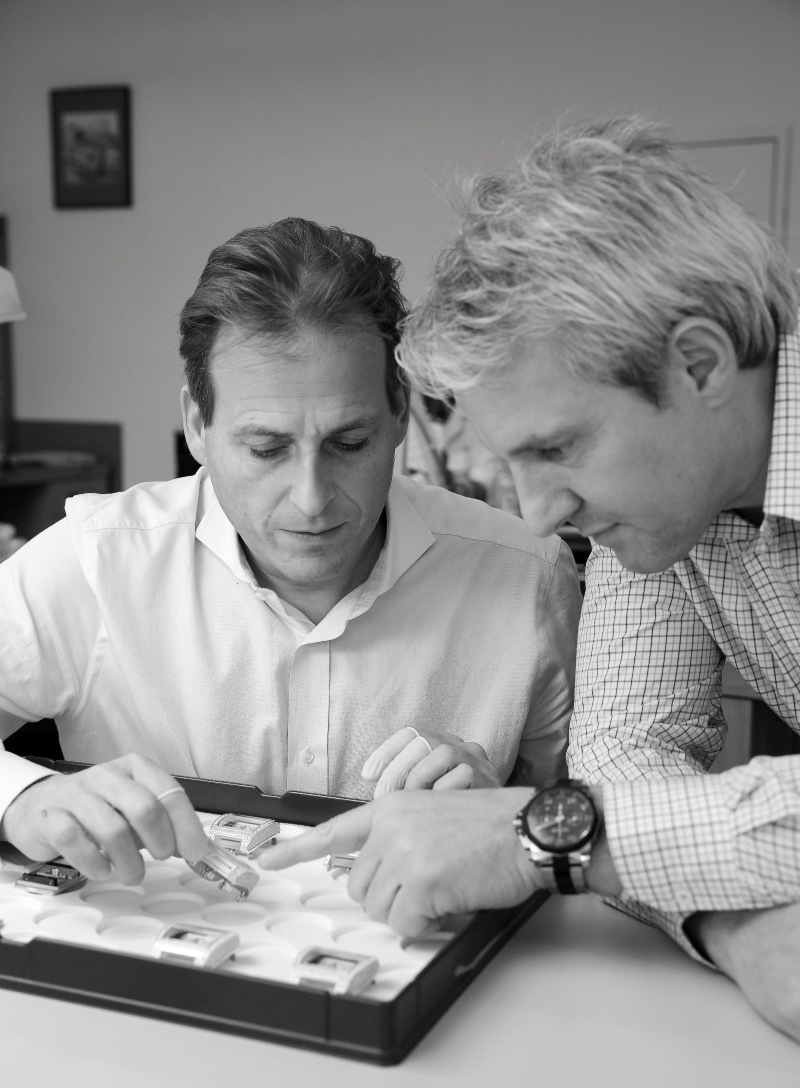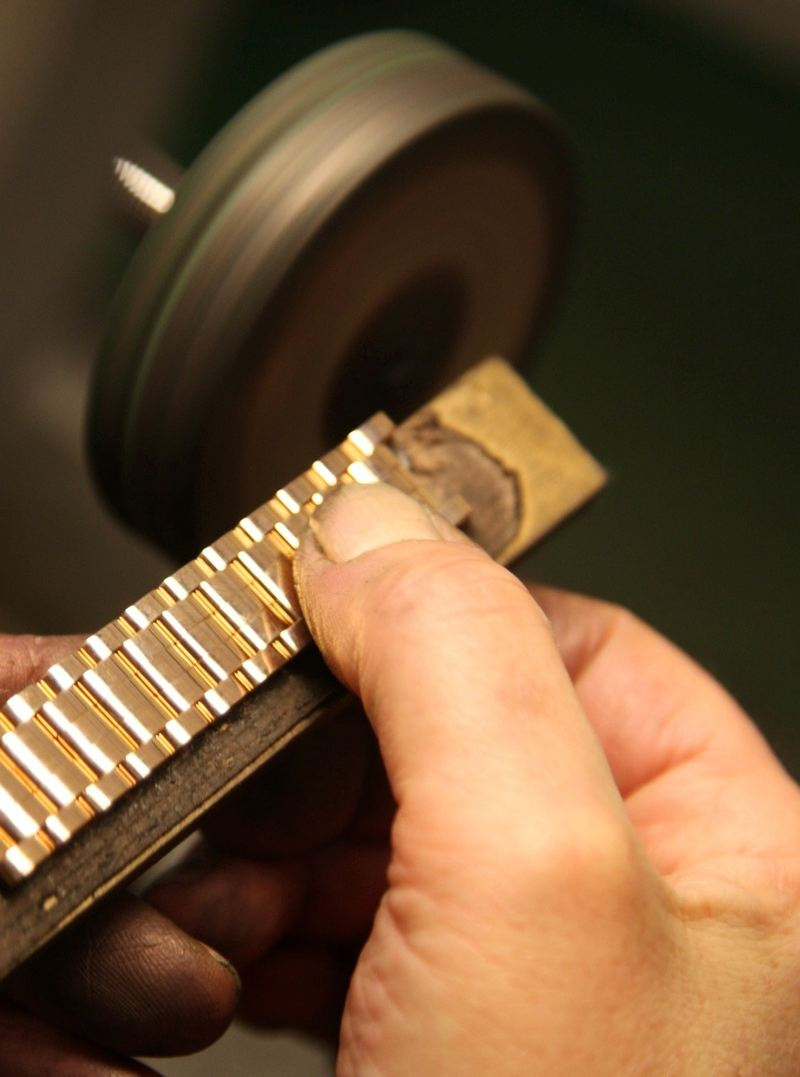

Proserto, Sercab and Val’Heure: from setting to watch cases
Located between Plateau de Bel-Air, Geneva and Vallée de Joux, this rapidly expanding independent group of three medium-size companies has around 200 employees. They develop a blend of skills that is much appreciated by watchmaking brands.
In the universe of excellence and traditional crafts, being discreet is a must for watchmaking subcontractors. Indeed, customers must not be overshadowed as they are often prestigious brands which are reticent to reveal their procedures and addresses. This is extremely important because often the good name of brands depends on the end-customer’s conviction that they know everything and master the production chain from the creative phase to the finishing operations.
What really happens though is more subtle. There are some skills that still prevail and that even leading financial companies cannot buy. They come from a long-term tradition that was developed with patiently acquired and transmitted experiences, with shared passionate attitudes and the will to satisfy.

Values and ethics
Before becoming an entrepreneur, Ramon Iso was a jeweler. At 23, he rejected an offer from a leading manufacture and decided to collaborate with a diamond dealer, who later became his friend. They had to start from scratch since clients were used to other brands and needed to be convinced with tenacity and honesty. Always close to workshops and workbenches, he is one of those bosses who is able to throw an overall on and get his hands dirty. He knows very well what the final objective of customer satisfaction or the challenge of a complex piece meant. He also had the talent to detect small things, to encourage others as well as the ability to trust and to get the most out of everyone. He knew whom to employ and how to delegate. “I recruited the best; they are sometimes difficult but they are excellent”, he explained. He has created, sold and bought many companies. Today, he manages three companies, Proserto, Sercab and Val’Heure, where it is pleasant to work. Human respect is at the core of their work, even when choosing precious stones, in the sense that they must meet the criteria of the Kimberley Process.
Diversification and complementarity
Located in Chêne-Bourg, Sercab specializes in traditional and mechanized setting, art crafts, strap production, and finishes. In Le Sentier, Val’Heure specializes in the design and large-scale production of watch cases, external parts as well as straps, and finishes. This distribution of work makes the most of the natural synergy between the two established sister companies, which opted for complementary specializations. The history of watchmaking companies is often linked to particular demands. Sometimes clients order exclusive products to fulfill a specific wish. Sometimes satisfied customers discover new abilities in their suppliers like their competence to expertly handle machines and tools that can fulfill unusual needs. This is what brings about diversification.
The visual coherence of a group
Today, it’s all about communication. Whilst the names of their clients always remain unknown, the achievements of these professionals, half way between pure craftsmen and masters of industrial procedures, send a powerful message. They are as impressive as the beauty of the materials they use and master. The market needs clear signals.
The solid structure of the company reassures clients, especially when the latter are groups in the process of becoming independent.
At first, the three entities of the group adopted a graphic unity, i.e. a coherent image. The website of each of the companies was redirected to a common portal. It was also a way of lessening the geographical distance between the group’s entities since Sercab is located in Chêne-Bourg, Proserto in Geneva’s left bank, which is a prestigious address, and Val’Heure in Vallée de Joux. This layout reflects the expertise and the diversity of the watchmaking network in French-speaking Switzerland.
Independence: a state of mind
The amount of watchmaking brands opting for independence is growing. Not a month goes by without the news of the acquisition or the merger of suppliers or even, when business is good, an equity investment that guarantees a perennial supply of materials. Sometimes subcontractors who have taken decades to develop their particular skills agree to be bought out for a good price. Therefore, staying independent requires resistance and being able to refuse huge orders form leading clients which could compromise the company’s balance.
In this context, it was vital for Sercab SA, Proserto SA and Val’Heure SA to openly become one. They are solid, they complement each other, and furthermore the 200 motivated employees possess skills that give them a high level of added value.
Val’Heure SA, in Le Sentier. This part of the set-up specializes in watch cases, dials and straps in stainless steel, titanium or precious materials. They also focus on all aspects of external parts, including their production, polishing and finish. From conception to creation, it counts amongst its clientele prestigious watch brands and has around eighty employees.
Proserto SA, Geneva’s left bank. With its high standards and its twenty years of experience in setting, the company is in sync with both current techniques and secular crafts and is able to develop new projects. In this setting workshop located in the heart of Geneva, around twenty jewelers, finishers and polishers perpetuate the cabinotier spirit.
Sercab SA, in Chêne-Bourg, Geneva. It has around 100 employees who have been trained and recruited due to their reputation of excellence and who are entirely dedicated to the crafts of traditional or mechanical setting, finishing and precision mechanics.
With twenty years of experience, the watchmaking manufacture has recently diversified to incorporate into its work the integral development of metal and set metal straps.

History of an independent group
1990: creation of Proserto which specializes in jewelry-making
1995: Sercab was founded.
1996: Lavallee was founded and it specialized in watchmaking setting and jewelry-making. Also this year LG Mécanique – producer of precision mechanics for jewelry-making and watchmaking – was created. Mechanized setting was also developed.
1998: Val’Heure was created as a result of the merger between Lavallee and LG Mécanique
2000: Sercab opened its own manufacture in Chêne-Bourg
2012: The almost 200 employees working for the three different companies see their work enriched by the skills of the others.




